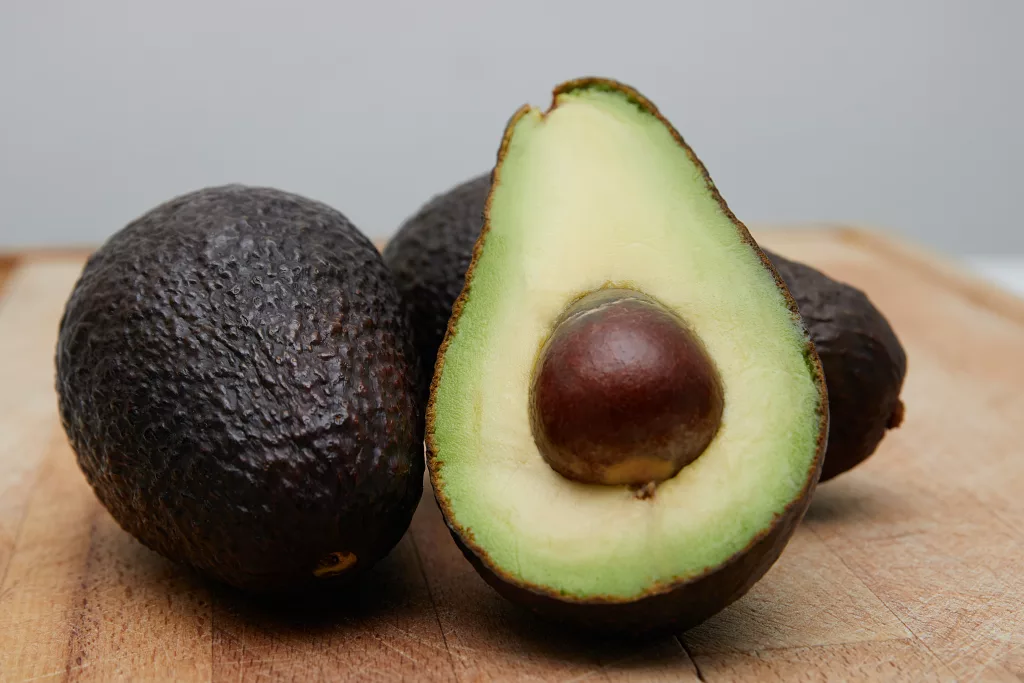
Avocados are a good source of essential nutrients, such as the heart-healthy fats and fiber that they contain. They also include anti-inflammatory and antioxidant chemicals, which may assist in lowering the risk of developing cardiovascular disease. This article provides a rundown of the health benefits of avocados and reasons why you should eat them.
Because they are nutritious, adaptable, and tasty, avocados have quickly established themselves as a go-to ingredient in the kitchens of many people all over the world.
Avocados are thought to have originated in Mexico and Central America, but today they are cultivated all over the world, even in parts of the United States.
The state of California is the leading producer of avocados in the United States. The state is home to more than 5,000 avocado farms, which together produce more than 400 million pounds of avocados on an annual basis.
These fruits play an essential role in the preparation of traditional foods from Mexico, Central America, and South America. They may be found in a variety of recipes, including guacamole, salads, tacos, and more.
Due to the fact that avocados are incredibly high in nutritive value and have been associated with a variety of positive health effects, they have garnered a lot of attention in the field of health and wellness.
Here are incredible health benefits of avocados that should definitely be known.
1. Avocados Are Great Source Of Nutrients
Avocados are an excellent source of a variety of vital nutrients, many of which are uncommon in the diets of modern people.
As can be seen, avocados are among the most nutrient-dense fruits available. In addition to providing a good supply of fiber and heart-healthy fats, avocados also contain a plethora of essential vitamins and minerals.
They are a good source of magnesium, vitamin B6, vitamin C, vitamin E, and folate, all of which are nutrients that are frequently missing in the diets of many individuals.
One half of an avocado, for instance, contains 10% of the daily need for the mineral potassium.
A study that looked at the dietary habits of 4,730 persons in the United States revealed that less than three percent of them had potassium intakes that were higher than the recommended daily appropriate intake for potassium, which is 4,700 milligrams.
Potassium is essential for the regulation of blood pressure as well as the function of the neurological system. It is also required for a number of other important body activities. Consuming the daily quantity of potassium that is suggested for preventing hypertension and strokes may help guard against these conditions.
Additionally, avocados are a good source of vitamins C, B6, and E, all of which are nutrients that are necessary for maintaining a healthy immune system.
A component that helps regulate inflammation and protect against oxidative damage is B6, and a half of an avocado offers 15% of your daily requirement for this nutrient. Consuming insufficient amounts of vitamin B6 can have a detrimental effect on immune function and raise the risk of getting sick.
Even in developed countries like the United States and Canada, a significant number of people have levels of B6 that are suboptimal or slightly below the recommended range.
The consumption of avocados on a regular basis may contribute to an improvement in the quality of one’s diet as a whole because avocados contain a wealth of nutrients that are necessary for achieving and maintaining optimum health.
Avocados are an excellent source of a wide variety of nutrients, such as fiber, wholesome fats, vitamins C, E, B6, potassium, and magnesium, and folate. Consuming them on a daily basis may contribute to an improvement in the quality of the diet as a whole.
2. Beneficial For The Overall Health Of The Gut

Each avocado contains close to 14 grams of fiber, making it one of the fruits with the highest fiber content. That is about half of the current recommended daily value for this essential nutrient.
Because it encourages the growth of good bacteria in the gut, eating a diet that contains an adequate amount of fiber is critical for maintaining good digestive health.
People who ingested 175 grams (men) or 140 grams (women) of avocado per day for 12 weeks had decreased fecal bile acid concentrations and greater bacterial diversity compared to a control group, according to the findings of a study that involved 163 adults who were judged to be overweight.
Increased amounts of bile acid cause inflammation in the digestive tract and are linked to the proliferation of microorganisms that have been linked to adverse health effects such as colon cancer.
In addition, the avocado group contained a greater number of the bacteria Faecalibacterium, Lachnospira, and Alistipes. These three bacteria are responsible for the production of short-chain fatty acids (SCFAs), which include butyrate.
SFCAs assist in the production of fuel for colon cells and provide protection against diseases such as colorectal cancer and inflammatory bowel disease.
In spite of the fact that these findings are encouraging, it is important to note that this study was partially supported by the Hass Avocado Board, which may have had an impact on the findings.
Also, bear in mind that the health of your digestive tract benefits from eating fruits, vegetables, nuts, and seeds, as well as any other meals that include fiber. Consuming a wide variety of foods that are high in fiber, not just avocados, is the single most essential thing that can be done to support digestive health.
Avocados have a lot of fiber, which is an important nutrient for maintaining a healthy digestive tract. There is some evidence to suggest that eating avocados may be beneficial to the health of the gut by increasing the bacterial diversity in the feces and decreasing the concentration of bile acid in the feces.
3. May Assist In Lowering Risk Factors For Coronary Heart Disease
Consuming foods that are high in nutrients on a consistent basis, such as avocados, may help protect against cardiovascular disease.
Avocados include a variety of essential nutrients, including vitamins, minerals, unsaturated fats, and fiber, all of which contribute to the maintenance of a healthy cardiovascular system.
According to the findings of a recent study, eating a diet that is high in avocados may help improve some risk factors for heart disease, which in turn may help prevent the development of heart disease.
The Hass Avocado Board has supported a significant number of studies that investigate the impact avocados have on the health of the heart. Some experts believe that industry involvement in research that has been peer-reviewed could potentially distort the conclusions; nonetheless, this does not cast doubt on the findings of the study.
In spite of this, there is some evidence that eating avocados can help raise levels of heart-healthy HDL cholesterol while simultaneously lowering levels of oxidized LDL cholesterol. Oxidized LDL cholesterol is a kind of cholesterol that is strongly linked to atherosclerosis, which is the accumulation of plaque along the walls of arteries.
In addition, the high potassium and magnesium content in avocados makes them an excellent food choice for those looking to maintain healthy blood pressure levels. For the prevention of heart disease, maintaining a healthy blood pressure level is of the utmost importance.
Avocados have been shown to help raise levels of heart-protective HDL cholesterol while simultaneously lowering levels of oxidized LDL cholesterol. Oxidized LDL cholesterol is a form of cholesterol that is strongly connected with atherosclerosis, which is the buildup of plaque along the walls of arteries.
4. An Abundant Source Of Antioxidants And Other Substances That Reduce Inflammation

Avocados are a rich source of many different types of bioactive compounds, in addition to the vitamins, minerals, beneficial fats, and fiber that they already contain. These bioactive compounds include carotenoids, vitamins C and E, and phenolic compounds.
It has been demonstrated that these compounds possess important antioxidant, neuroprotective, and cardioprotective effects.
Carotenoids, such as lutein, beta-carotene, and alpha-carotene, all of which can be found in avocados, have been demonstrated to have powerful antioxidant effects, which protect against oxidative damage. Oxidative damage is related with the advancement of a wide variety of chronic diseases.
Eating avocados on a daily basis may help boost the antioxidant defenses of the body because avocados have a high concentration of antioxidants.
When compared to participants who followed a standard Western diet that did not include avocado, the consumption of one avocado per day was observed to raise blood levels of the pigment lutein. The study involved 45 participants.
Additionally, having a greater dietary intake of antioxidants contained inside avocados, such as vitamin C and carotenoids, as well as higher blood levels of these antioxidants, has been related with enhanced cognitive performance, improved heart health, and other benefits.
Avocados are a fantastic food choice for anyone looking to increase their intake of anti-inflammatory and antioxidant nutrients such as vitamin C, vitamin E, and the carotenoid lutein.
5. May Contribute To The Maintenance Of A Healthy Body Weight
Although there are a number of things that can affect one’s weight, keeping a diet that is both nutritious and well-balanced is possibly the single most important thing one can do to achieve and keep a healthy body weight, which is essential for the prevention of disease.
The rich fiber and beneficial fat content of avocados, in addition to their high calorie count, contribute to a feeling of fullness and help make up for the fruit’s relatively high calorie count.
According to the findings of recent studies, adopting a dietary pattern that is high in fiber foods, such as fruits and vegetables, may make it easier to shed extra pounds. In addition, research shows that individuals who consume a diet rich in fiber are more likely to have healthier body weights than individuals who consume diets that are lower in fiber content.
Independent of the amount of calories and macronutrients consumed, the amount of fiber in one’s diet was revealed to be the single most important factor in determining one’s body weight in a study that involved 345 participants.
In addition, consumption of avocados has been linked in a number of studies to benefits including better satiety, reduced belly fat, and weight loss.
On the other hand, the Hass Avocado Board underwrites an overwhelming majority of research projects that investigate the link between eating avocados and reduced body fat. It bears repeating that the conclusions of studies can be influenced by sponsorship from the food business, even though this does not call those results into question.
Whatever the case may be, it is abundantly obvious that increasing the consumption of foods that are rich in dietary fiber likely helps weight reduction through boosting satiety. Consuming more foods that are high in fiber, such as avocados, may therefore be a beneficial choice for individuals who aim to either facilitate weight loss or maintain their current body weight.
Here’s the Deal About the Avocados Health Benefits:
Avocados have a remarkable nutrient density and are particularly abundant in dietary fiber, vitamin B6, vitamin C, potassium, vitamin E, folate, and copper. Avocados also contain a large number of other essential components.
Consuming avocados on a daily basis may be beneficial to one’s health in a number of ways, including the prevention of heart disease, the enhancement of the quality of the diet as a whole, the improvement of satiety, and the promotion of intestinal health.
In addition to that, they are delicious and adaptable.
What do you think about these 5 avocados health benefits to our bodies? Did you find this helpful? Let us know in the comments.
Source: Healthline
You can also visit our Facebook and YouTube pages to know more about plants and their health benefits.
You might also like:








